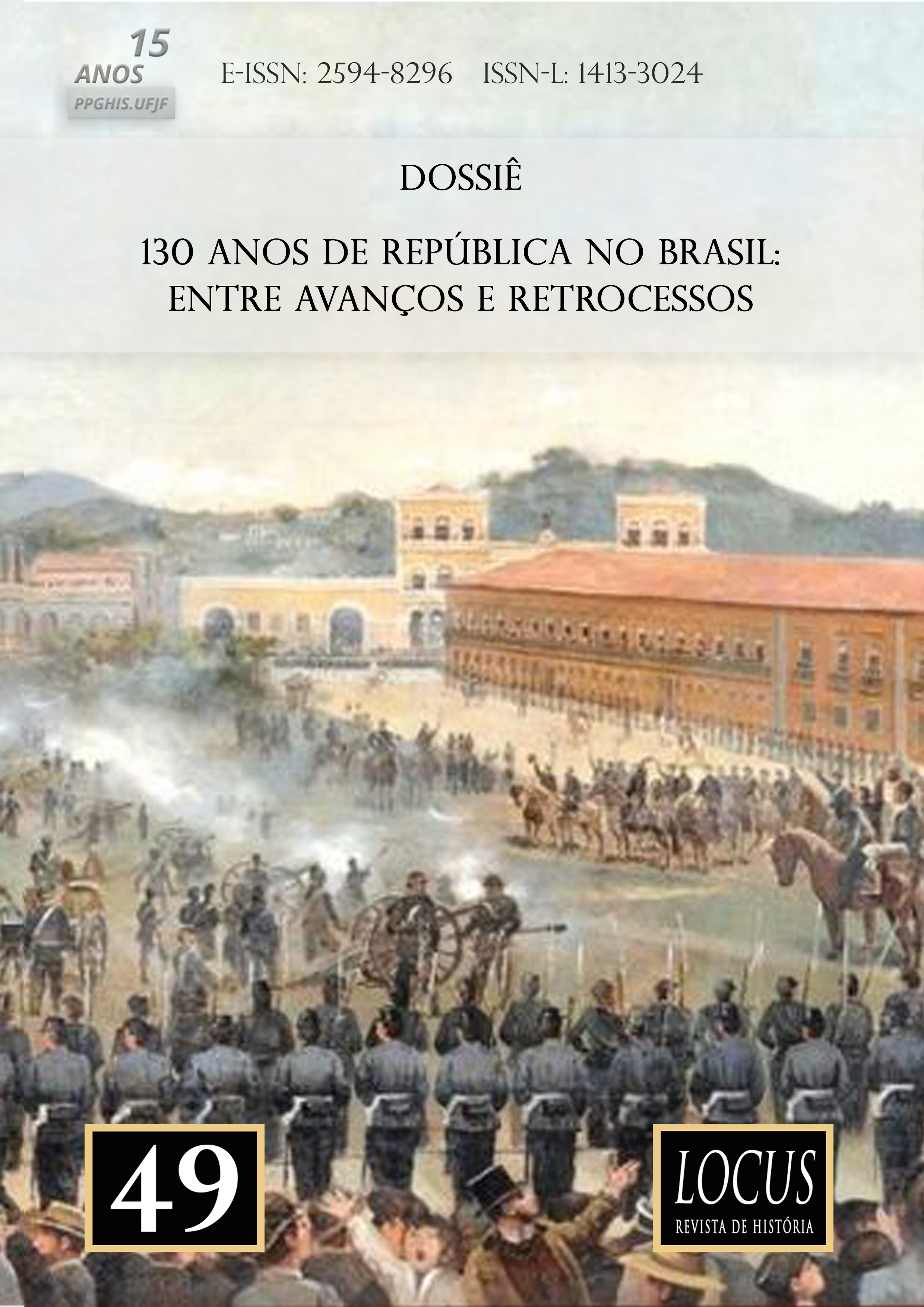Published 2019-12-05
Keywords
- Judiciary,
- habeas corpus,
- First Republic
How to Cite
Abstract
This article analyzes the role of the Brazilian judiciary in the First Republic. As a documentary basis, we use original habeas corpus lawsuits of the Federal District, filed with the STF in the 1920s, which are available at the Supreme Court Archive in Brasilia and at the National Archive in Rio de Janeiro. As the methodological point of view, we use sampling; 20% of the processes filed at the beginning of each year were cataloged. As will be shown, despite being easily requested, the habeas corpus institute was far from being a remedy, in fact, granted to the population in the First Republic, as its grant was quite restricted. The main argument defended here is the necessity for relativization of interpretations that overestimate the role of the Supreme Court and the Judiciary in the exercise of citizenship in the period. These statements project for the period the role played by the Supreme Court in the Brazilian democracy of the New Republic, when these studies are produced, and oversize the action of the judiciary to combat the model of a reactive citizenship, built from the analyzes disclosed in the 1980s.
Downloads
References
- Bibliografia
- CARVALHO, E. R. de. Em busca da judicialização da política no Brasil: apontamentos para uma nova abordagem. In: Revista de Sociologia e Política, Curitiba, p. 1-17, 2006.
- CARVALHO, José Murilo de. Cidadania no Brasil: o longo caminho. Rio de Janeiro: Civilização Brasileira, 2004.
- ______. Os bestializados: o Rio de Janeiro e a República que não foi. São Paulo: Cia das Letras, 1987.
- CASTRO, Tatiana de Souza. “Assim se espera Justiça”: o remédio jurídico do habeas no Supremo Tribunal Federal (1920-1929). Tese de Doutorado em História. PPHR, UFRRJ, Seropédica, 2018.
- CAULFIELD, Sueann. Em defesa da honra: moralidade, modernidade e nação no Rio de Janeiro (1918-1940). Campinas: Editora da Unicamp, 2005.
- COSTA, Emília Viotti da. O Supremo Tribunal Federal e a construção da cidadania. São Paulo: Ieje, 2001.
- FERREIRA, Marieta de Moraes e PINTO, Surama Conde Sá. A crise dos anos 1920 e a revolução de 1930. In: DELGADO, Lucília e FERREIRA, Jorge L. O Brasil Republicano. Rio de Janeiro: Civilização Brasileira, vol, 1, 2013.
- KOERNER, Andrei. Habeas-corpus, prática judicial e controle social no Brasil (1841-1920). São Paulo: IBCCrim, 1999.
- ______. Judiciário e cidadania na Constituição da Primeira República brasileira. (1841-1920). 2ªed. Curitiba: Juruá, 2010.
- ______.. O habeas-corpus na prática judicial brasileira (1841-1920). Tese de doutorado. São Paulo, USP, 1998.
- LEAL, Victor Nunes. Coronelismo, enxada e voto: o município e o regime representativo no Brasil. 7ª ed. São Paulo: Companhia das Letras, 2012.
- MACIEL, D. A. ; KOERNER, Andrei. O sentido da judicialização da política. Duas análises. In: Lua Nova, 57, p. 113-133, 2002.
- NAUD, Leda Maria Cardoso. Estado de sítio – 3ª parte. Revista de Informação Legislativa, v. 2, nº. 7, set. 1965.
- RIBEIRO, Gladys Sabina. Cidadania e luta por direitos na Primeira República: analisando processos da Justiça Federal e do Supremo Tribunal Federal. Revista Tempo, Niterói, pp.101-117, 1º sem. 2009.
- ______. O povo na rua e na justiça, a construção da cidadania e luta por direitos: 1889-1930. In: SAMPAIO, Maria da Penha Franco; BRANCO, Maria do Socorro C.; LONGHI, Patrícia (orgs.). Autos de memória: a história brasileira no Arquivo da Justiça Federal. Tribunal Regional Federal – Rio de Janeiro, 2006. p.155-223.
- SCHETTINI, Cristiana. “Que tenhas teu corpo”: uma história social da prostituição no Rio de Janeiro das primeiras décadas republicanas. Rio de Janeiro: Arquivo Nacional, 2006.
- SLEMIAN, Andréa; LOPES, José Reinaldo de Lima; NETO, Paulo Macedo Garcia (org.s). O Supremo Tribunal de Justiça do Império (1828-1889). São Paulo: Saraiva, 2010.


